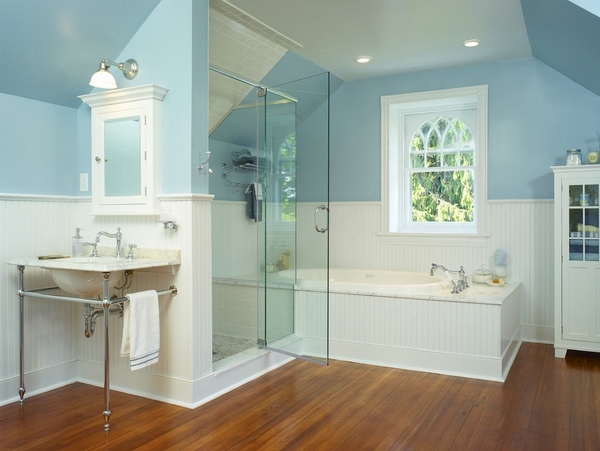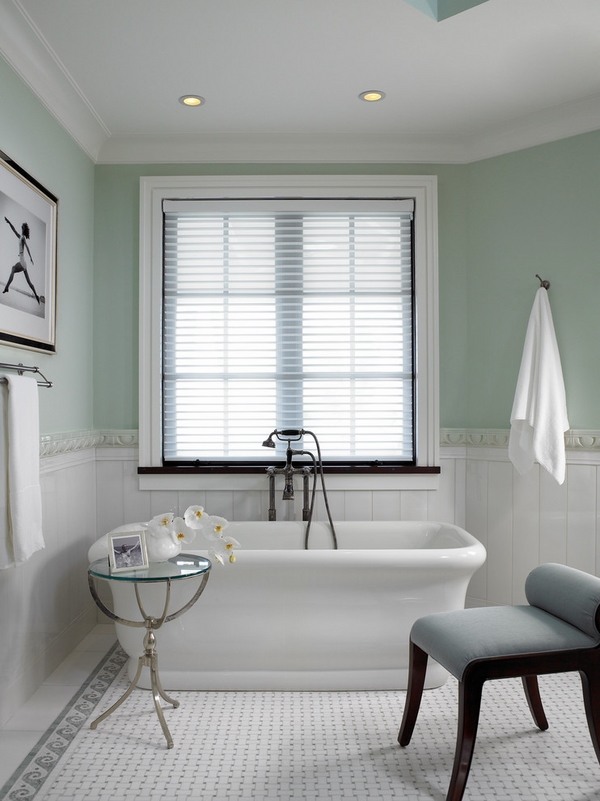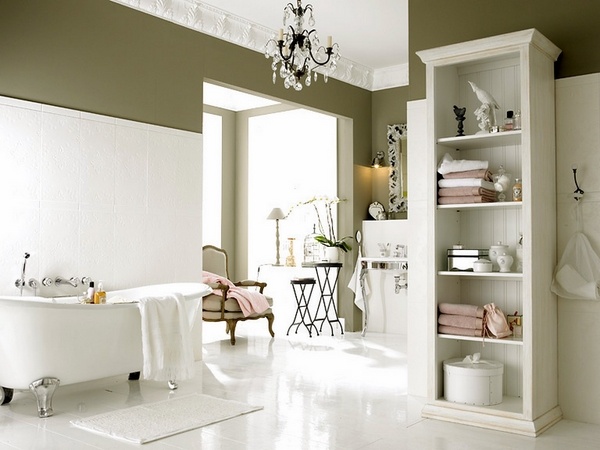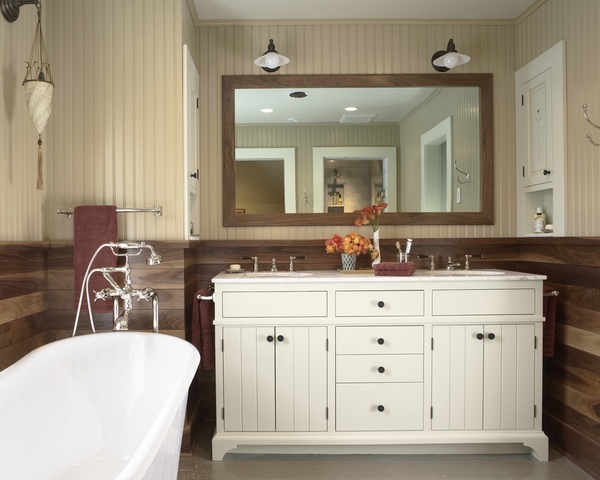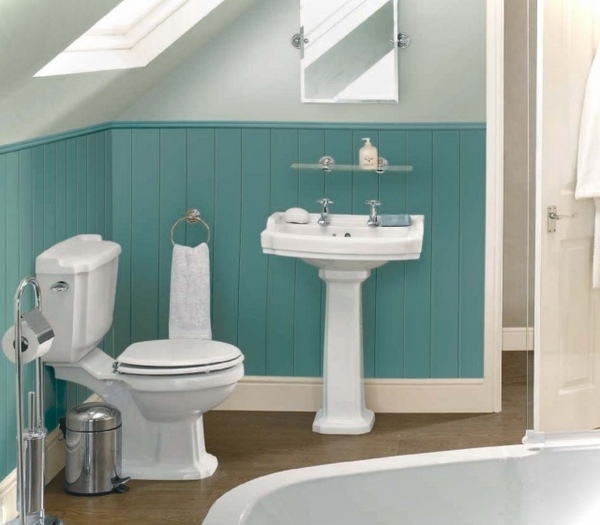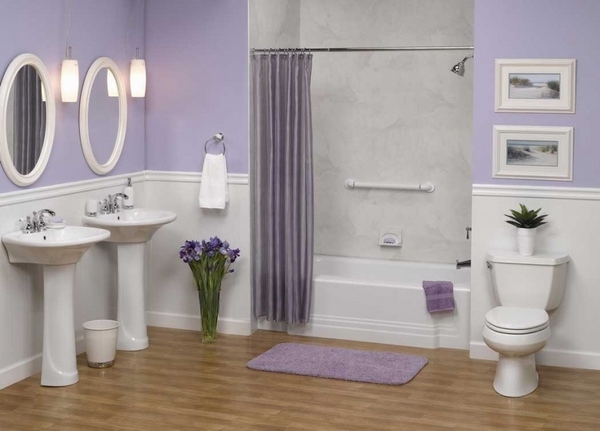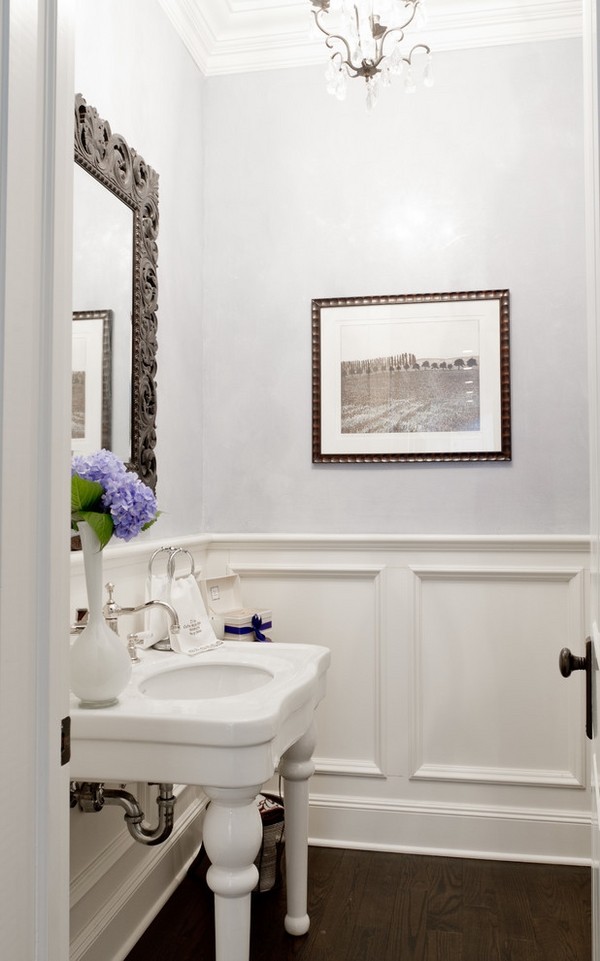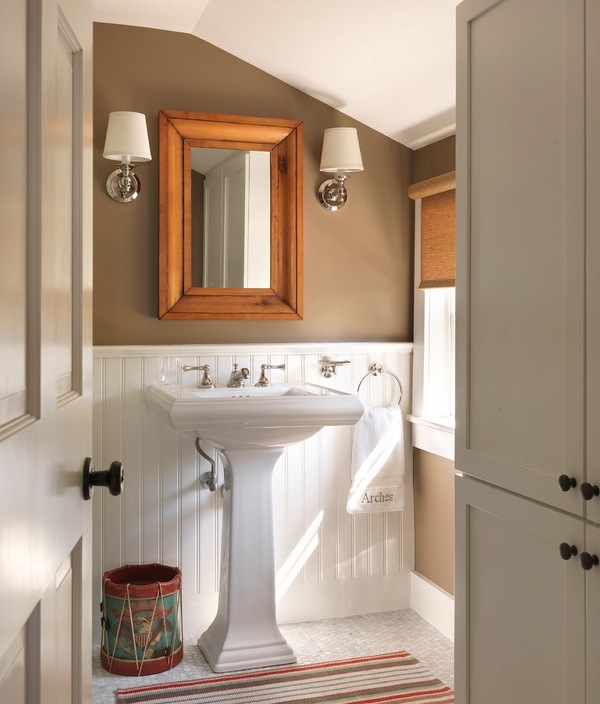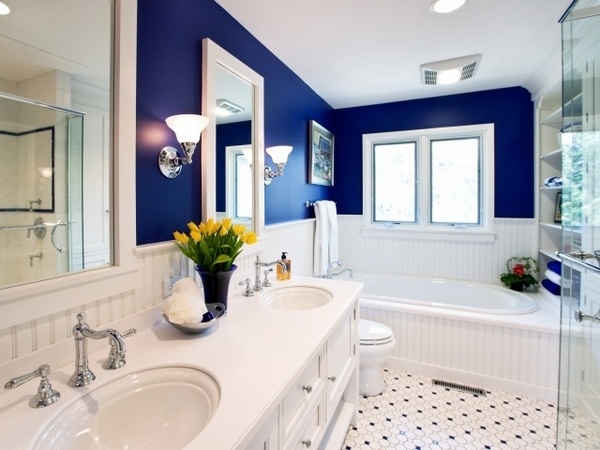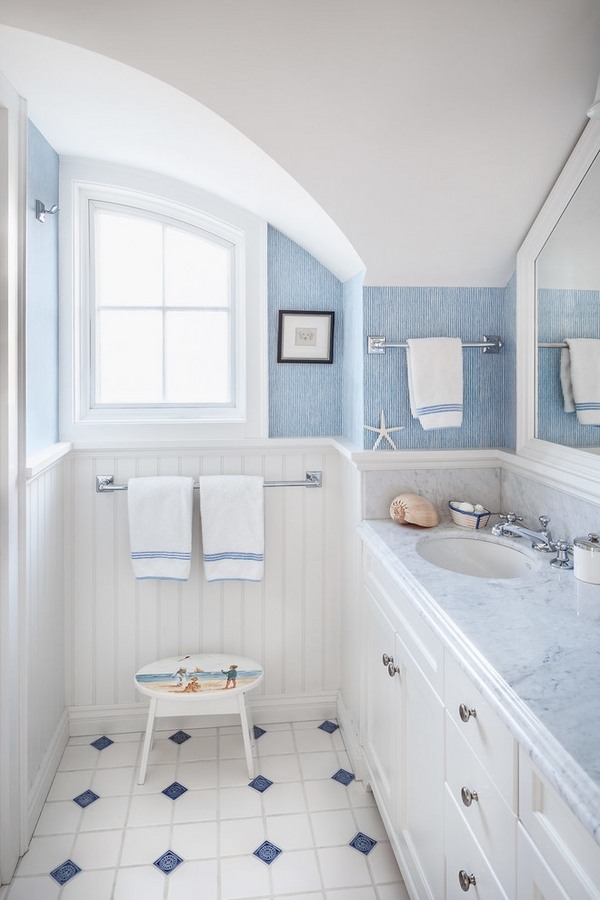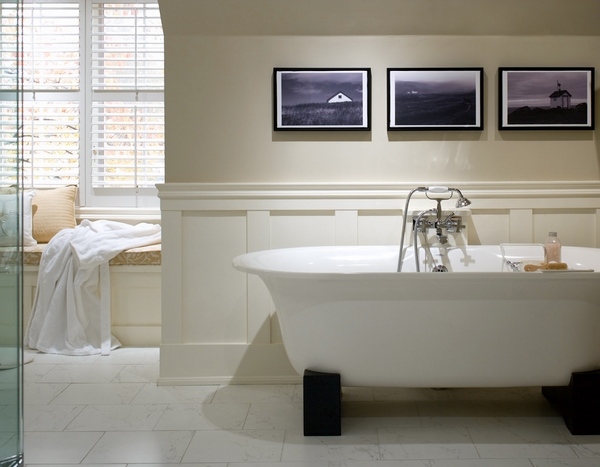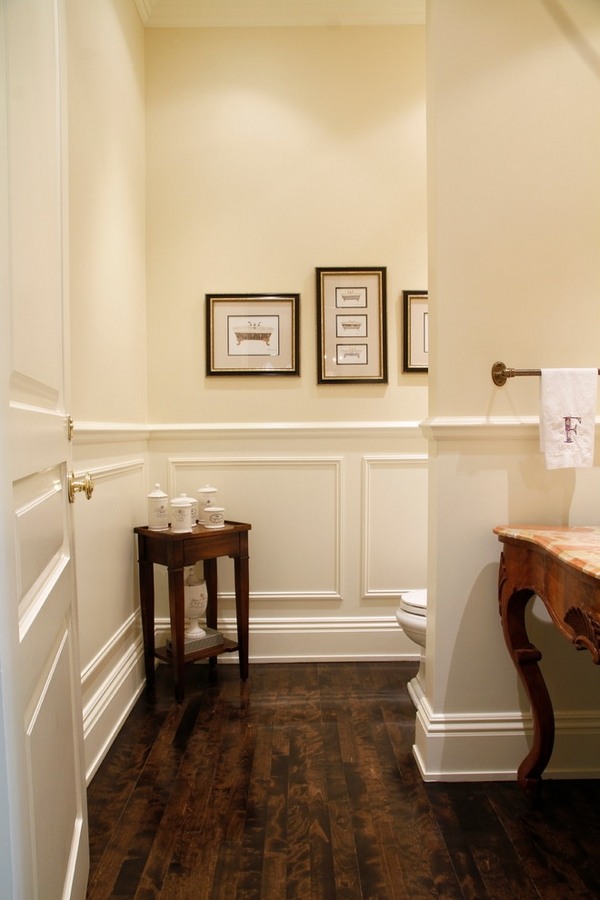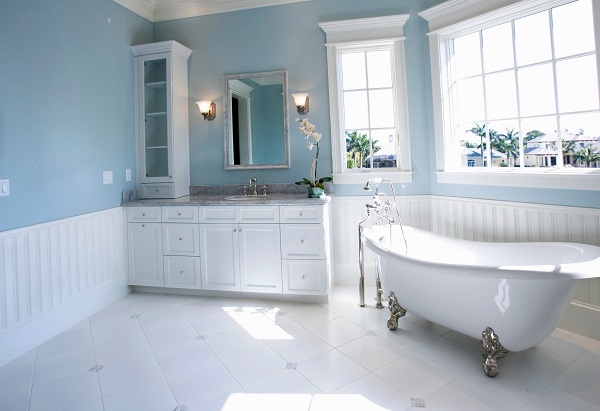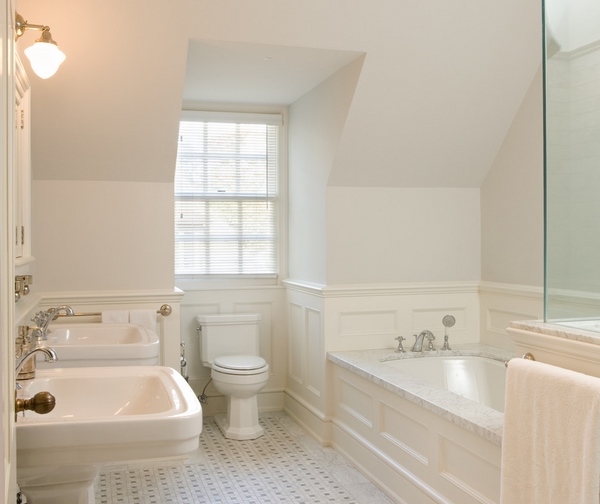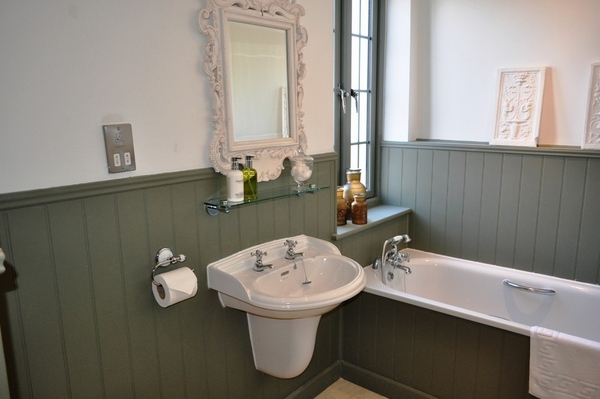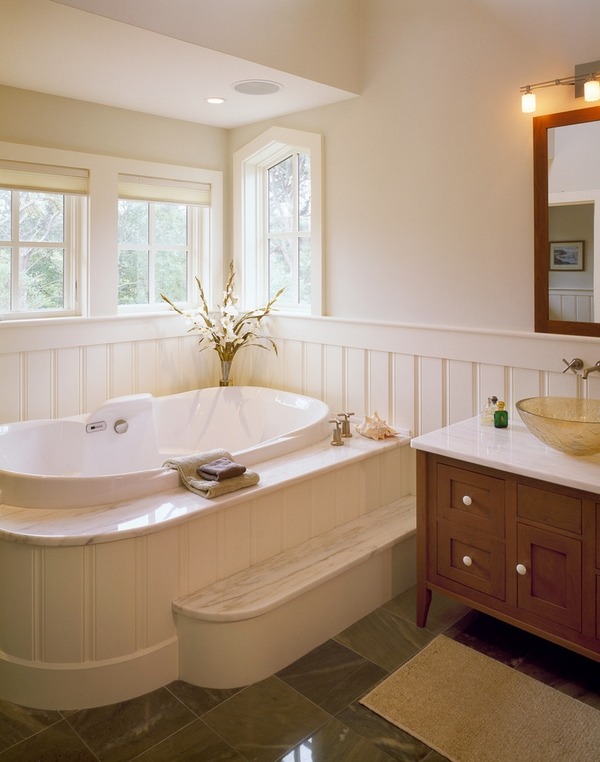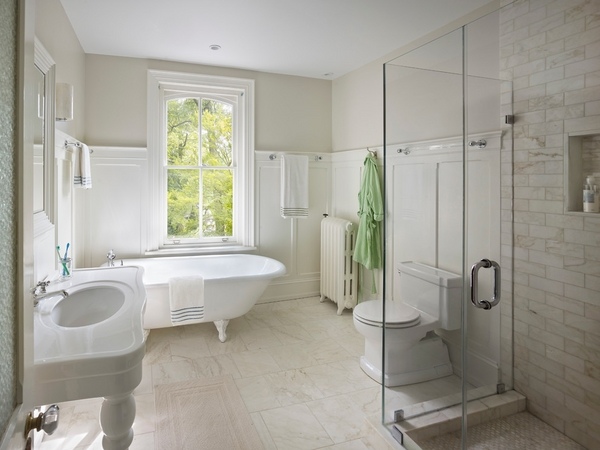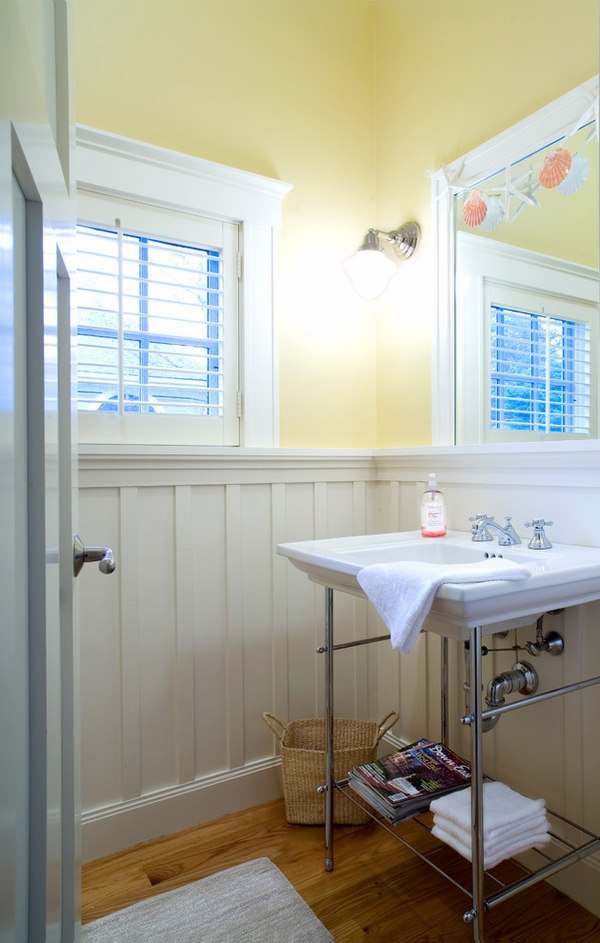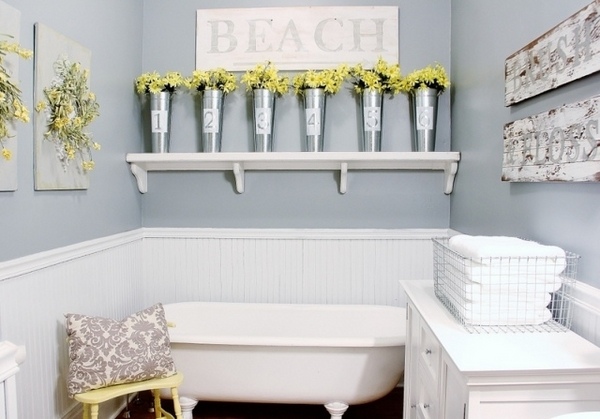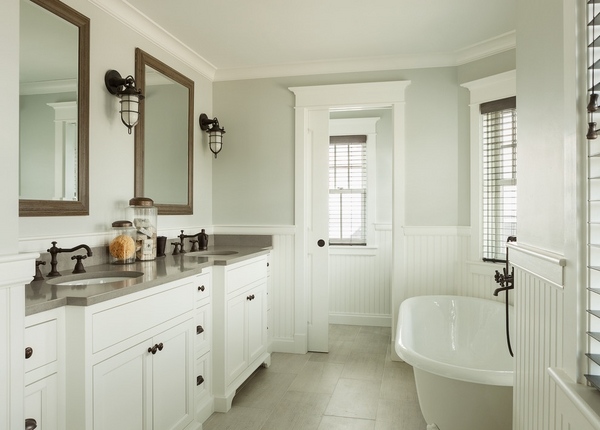Bathroom wainscoting, by definition, is a partial-wall paneling used in bathrooms. Like wainscoting applied to any other rooms of the home it features nailing on wooden panels to the lower section of the walls and topping them with chair rail molding.
It is true that bathroom wainscoting adds to the overall appearance of the bathroom. Although it is considered as a traditional decoration for bathrooms, we have collected 20 examples to demonstrate how wainscoting finds its rightful place in modern bathroom design. Besides the decorative value of the wainscoting, a well-designed and tasteful look of the bathroom will add value to your house and this only makes the investment worthy.
There are no strict rules for the height of bathroom wall paneling. It depends on the personal taste of the homeowner and the overall design of the bathroom. Of course, the main goal is to have the maximum effect from design as well as to get the best from purely practical point of view. Most people opt for the traditional height of 45 inches off the ground including the top rail but there are people who prefer high raised wall panels. The height of the wainscoting would also depend on the height of the room, sink height, the size and height of the vanity unit, etc.
The market offers a wide variety of bathroom wainscoting from different materials – MDF, pinewood , cedar, vinyl or PVC. The fact that water may cause damage to natural wood or MDF panels makes PVC, cedar or vinyl the best alternative which would prove to be cost effective and practical.
Colors of wainscoting for the bathroom can vary from traditional white to natural wood. White and natural wood blend in and suit to every wall color but if the overall bathroom design features any other color – the wainscoting can be easily painted.

